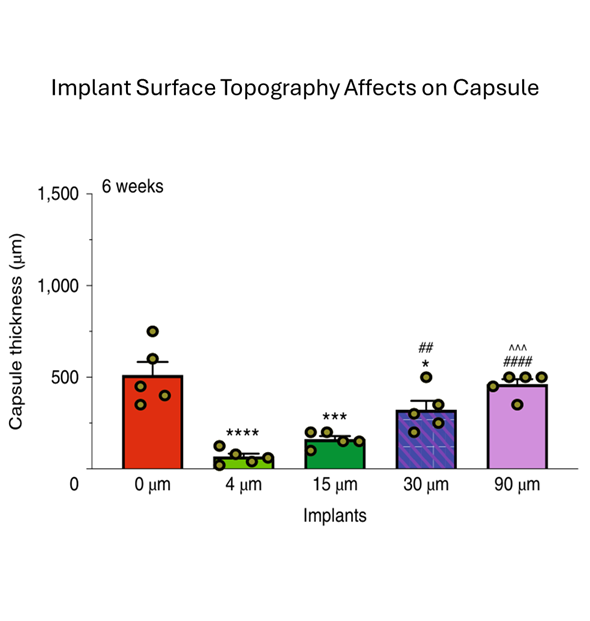Breast Implants Elicit Local and Systemic Immune Response: Evidence for Breast Cancer Immunosurveillance
- Recon Review
- May 12, 2025
- 3 min read
Updated: Jun 23, 2025
Plastic and Reconstructive Surgery, May 2025
Key Takeaways
Breast implants are associated with immune activation both locally in the breast tissue and systemically in the blood.
Patients with prior implant exposure showed elevated circulating antibodies to breast cancer–associated proteins and upregulated immune-related gene expression in breast tissue.
These findings demonstrate that breast implants can stimulate durable immune responses, though the clinical implications—whether protective, neutral, or harmful—remain uncertain and require further investigation.
Background
Epidemiologic data suggest women with cosmetic breast implants have a lower incidence of future breast cancer. Prior work has shown that such patients exhibit heightened antibody responses to certain tumor-associated antigens. This study builds on those findings by investigating whether the immune response triggered by silicone implants extends into the adjacent breast parenchyma, potentially contributing to cancer immunosurveillance.
Objective
To determine whether breast implants alter the immune system, this study compared antibody levels in blood and immune-related gene expression in breast tissue from women with and without prior breast implant exposure.
Methods
The study population comprised healthy adult women undergoing elective cosmetic breast surgery at a single academic institution. Participants were stratified into two cohorts based on prior implant exposure:
Implant-naïve (IN): Undergoing primary augmentation
Implant-exposed (IE): Undergoing revision augmentation following prior implant placement
Exclusion criteria included history of cancer, autoimmune disease, immunosuppression, HIV, or hepatitis.
Systemic Immune Response Assessment:
Serum samples were tested for antibodies to MUC-1, ER-α, mammaglobin-A, CEA, and HER-2 using ELISA.
These proteins are commonly associated with breast cancer and are used as biomarkers to assess immune recognition of tumor-related antigens.
Longitudinal analysis was conducted in a subset of patients with samples at baseline, 1 month, and 6 months post-implantation.
Local Immune Response Assessment:
Breast tissue was analyzed via quantitative RT-PCR and bulk RNA sequencing.
Statistical analyses included Wilcoxon rank-sum tests, Mann-Whitney U tests, and multivariable regression to adjust for confounders including age and pregnancy history.
Results
Cohort Details:
Blood samples were analyzed from 188 patients: 117 implant-naïve and 71 implant-exposed.
Breast tissue samples were analyzed from 65 patients: 35 implant-naïve and 30 implant-exposed.
Antibody Levels: IE patients had significantly elevated levels of antibodies to:
MUC-1 (OD450: 0.42 vs. 0.33; P=0.001).
MUC-1 is a glycoprotein commonly overexpressed in breast cancer and plays a role in tumor progression and immune evasion.
ER-α (OD450: 0.20 vs. 0.17; P=0.036).
ER-α is the estrogen receptor commonly used to classify breast cancers as ER-positive
Mammaglobin-A (OD450: 0.33 vs. 0.23; P=0.001).
Mammaglobin-A is a breast tissue–specific protein that is frequently overexpressed in breast cancer and serves as a marker for diagnosis and immune response profiling.
No differences were observed for CEA or HER-2.
These elevations persisted at 6 months post-implant in longitudinally followed patients.
Tissue Gene Expression:
IE breast tissue showed increased expression of plasma cell–associated genes (CD138 ↑1.90×, P=0.01; PAX5 ↓0.53×, P=0.031), suggesting enhanced B-cell activation and differentiation into antibody-secreting plasma cells in implant-exposed breast tissue.
Th17-associated genes were significantly elevated, indicating increased activity of a T-cell subset involved in inflammation, autoimmune responses, and potentially anti-tumor immunity.
IL17A (2.16×, P=0.004), RORC (1.66×, P=0.024), and BATF (2.36×, P<0.001), supporting enhanced Th17 pathway activation in implant-exposed breast tissue.
Subgroup Findings:
MUC-1 antibody levels were higher with saline vs. silicone implants (P=0.034)
Duration >10 years was associated with higher MUC-1 antibody levels (P=0.002)
No significant differences in antibody levels were observed by implant texture, pocket location, rupture status, or capsular contracture.
Conclusion
Breast implants trigger a measurable immune response that extends from the local breast tissue into the bloodstream. This response includes B-cell activation and elevated antibodies to breast cancer–associated proteins. While not confirming a protective effect, the findings suggest that implants may stimulate immune pathways relevant to breast cancer detection or surveillance.
Strengths and Limitations
Strengths:
Integration of systemic and local immune data in a sizable, well-defined cohort
Use of both protein and gene expression analyses
Limitations:
Cohorts differed by age, menopausal status, and parity; although adjusted for in regression, residual confounding may exist
Lack of control groups undergoing non-implant breast surgery (e.g., mastopexy) limits attribution solely to implants
Discussion Commentary (Keane et al.)
Commended the study’s originality but emphasized key limitations in design.
Advocated for matched cohort or propensity score–matched studies.
Raised concerns that surgery-related inflammation (not the implant alone) may drive immune changes.
Questioned long-term relevance of Th17 response given its complex role in both cancer immunity and autoimmunity.
Suggested future research evaluate changes in immune response post-explantation, and in relation to adjunct procedures such as capsulectomy.
Clinical Relevance
This study provides evidence that breast implants are associated with measurable local and systemic immune activation, including elevated antibodies to tumor-associated proteins and immune gene expression in breast tissue. While the clinical impact remains unclear, these findings support the need for further investigation into whether implant-induced immune changes influence breast cancer risk or detection.




Comments